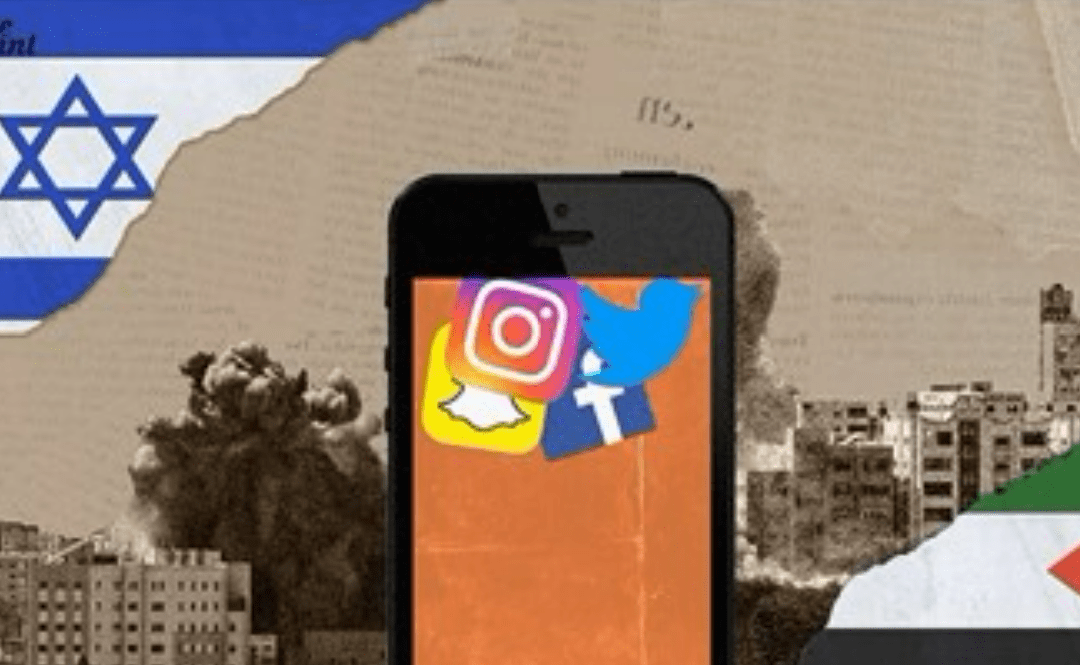By Magda El Dada | Staff Writer
On October 7th of 2023, time was set back 75 years and the Nakba of 1948 befell the people of Gaza once again. Fire broke out overnight, but this time, the international community witnessed it from a front-row seat. Social media platforms were equipped to their full potential, unyielding the truth of the decades-long genocide on the Palestinian people. For two months straight, live coverage of the genocide documented by Palestinian journalists took Instagram by storm. But now, around 130 days later, it feels as though the world has turned a blind eye to Israel’s war crimes when they are at their most lethal. Have we grown numb to the Palestinian cause? Have our voices been far too exhausted with pleas of a ceasefire dying out amid the lies of the West?
Guilt has consumed us all – guilt of not posting enough, guilt of feeling helpless, and guilt of living a privileged ordinary life while Gazans breathe in the smoke of bombings more than they do air. During the beginning of the war on Gaza, supporters of their freedom felt suffocated. We’d sit glued to our phones, scrolling through news outlets with heavy hearts. It felt wrong to feel happy, let alone share any of that happiness with loved ones on social media. People of the world stood united, and for the first time in history, Palestine’s heartbeat through the international community’s support. Gradually, hours watching the news were reduced to minutes. Liking every post about Palestine toned down into quick scrolls to avoid another martyr or another grieving mother, father, child, and lover. While several stayed true to our humanitarian duty and passionately fought and continue to fight for a ceasefire, many of us feel drained of energy. We have grown so accustomed to the sight of death and grief that the names we promised to recite and memorize slowly shifted to accelerating tolls. How did we get to a point where tragedy is the norm? How did we grow thick skin to the genocide, knowing that it is at its deadliest stage?
You don’t need to live through war to be traumatized by it. Secondhand trauma from daily exposure to the horrors forced upon the Gazans may lead to a state of “compassion fatigue.” This type of fatigue is closely linked to the feeling of burnout, but it originates from an overwhelming dedication to helping others and experiencing their trauma (Thurrott). It is characterized by a feeling of powerlessness and vulnerability as a result of exerting notable efforts and may manifest itself physically and psychologically. According to clinical psychologist Dr. Nayla Daou of ClearMinds Center Dubai, it is common for people to be severely impacted by the violence we witness asserted onto others. Moreover, according to Dr. Fabian Saarloos of the German Neuroscience Center, our bodies even respond by releasing cortisol and adrenaline as we are put under states of alertness and unsafety (Abueish). Furthermore, political psychologist Ramzi Abou Ismail adds that second-hand witnesses of the war can slowly become more apathetic and desensitized, causing them to tone down their passionate support and, hence, dim the light on the tortured Gazans (Hourany).
The global community is exhausted. We have been fighting and begging for not only the freedom of the Palestinians but also the ceasefire of bombings against South Lebanon. Despite that, we have yet to see the implementation of justice. While it is true that thousands of people are still dying and getting injured each day, it is crucial to think of the small successes that have revolutionized the “Free Palestine” movement – only then can we find the motivation to keep on fighting. However, to hold the capacity for that motivation and lively determination, we must first establish a sense of peace within ourselves. The fate of the Palestinians lies in great part in our hands, but we cannot exert pressure on global leaders if we are weakened and fragile. Primarily, it is important to limit our exposure to brutal content to avoid complete burnout. While we should always be informed and educated on the situation, we should process the content in “doses” to avoid traumatic overload (Thurrott). It is also important to proceed with our daily activities and respect that our bodies can only handle so much distress before they give up on us. Even though it might not seem like it, putting your phone down and stepping back from the overflow of graphic images may contribute to the cause more than full immersion online (Abueish).
The power of our voices must never be undermined; we hold the potential to shift the international perspective and influence change in the region like never before. We may not recognize the impact of our individual efforts, but collectively and hand in hand, our whispers can shake nations. It is up to us to ensure that the ethnic cleansing of Palestinian blood remains forever an impossibility, for as in the words of Nelson Mandela, “we know all too well that our freedom is incomplete without the freedom of the Palestinians.”
References
Abueish, Tamara (2023). ‘I feel helpless’: How to deal with guilt, anxiety from graphic Gaza images.
Hourany, Dana (2023). Compassion Fatigue in the War on Gaza.
Thurrott, Stephanie (2021). Watch for These Key Warning Signs of Compassion Fatigue.


As usual!
Beautifully written and eloquently stated!
Very relevant to almost everyone I know.
This is an article worth sharing!
Very much needed to hear the coping mechanisms shared in the article.